Research
-

Physician-scientists Aliyu, Tindle elected to ASCI
Vanderbilt’s Muktar Aliyu, MBBS, MPH, DrPH, and Hilary Tindle, MD, MPH, will be inducted this year into the American Society for Clinical Investigation (ASCI), an elite honor society of physician-scientists from the upper ranks of academic medicine and industry. Read MoreMar 31, 2021
-

NYU’s Tsien to discuss brain plasticity at next Discovery Lecture
Richard Tsien, PhD, director of the Neuroscience Institute at NYU Langone Medical Center, will deliver the next web-based Discovery Lecture. Read MoreMar 29, 2021
-

Research Snapshot: Exosuit concept developed at Vanderbilt peeks at the future of wearable tech
The idea Karl Zelik (Vanderbilt University) Erik Lamers (Vanderbilt University) Karl E. Zelik, assistant professor of mechanical engineering, and recent Ph.D. graduate Erik P. Lamers revealed a new exosuit designed to bring back relief to workers who have been under high strain throughout the pandemic, including last-mile delivery drivers and essential workers. The suit can... Read MoreMar 25, 2021
-
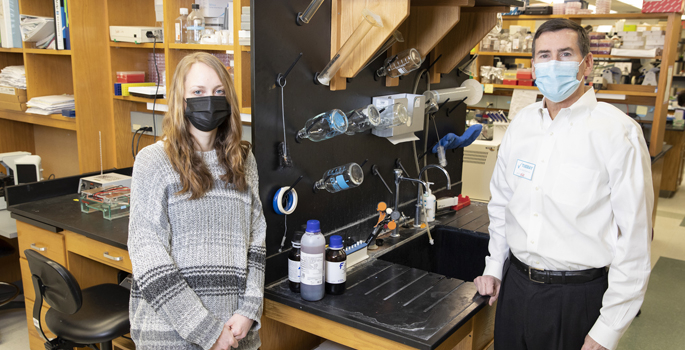
Team studies new use for pulmonary hypertension drug
An FDA-approved medication enhances the function of T regulatory cells (Treg), a class of immune cells that restrains the immune response, Vanderbilt investigators have discovered. Read MoreMar 25, 2021
-
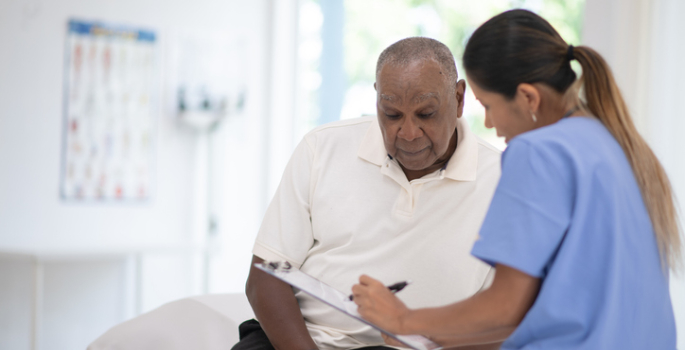
Prostate cancer microenvironment
Distinct cancer-associated fibroblasts in the prostate tumor microenvironment may influence tumor progression and could point to new therapeutic targets. Read MoreMar 23, 2021
-

Chemo for cancer lowers dementia risk
Cancer chemotherapy lowered risk of Alzheimer’s disease and other neurocognitive disorders that disproportionately affect older people. Read MoreMar 22, 2021
-

Strength training for osteoarthritis
High-intensity strength training is not more effective than low-intensity training or educational efforts for reducing knee pain in patients with osteoarthritis. Read MoreMar 18, 2021
-
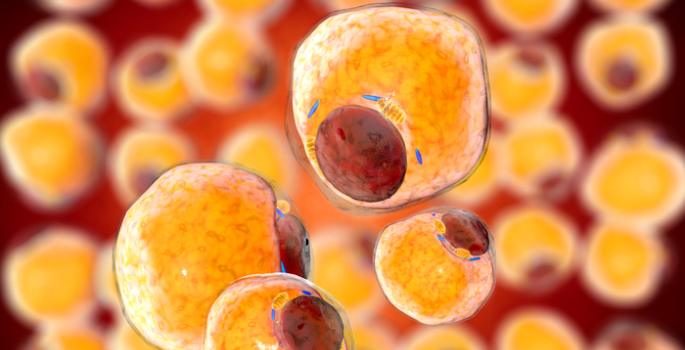
HIV, diabetes and immune cells in fat
In HIV-positive individuals with diabetes, immune cells in fat are more proinflammatory and cytotoxic and may represent a therapeutic target for diabetes. Read MoreMar 18, 2021
-

Study to assess allergic reactions to COVID vaccines
Vanderbilt University Medical Center is recruiting volunteers for a randomized controlled phase 2 clinical trial to help determine the prevalence of systemic allergic reactions (SARS) to the two-dose COVID-19 mRNA vaccines made by Pfizer-BioNTech and Moderna. Read MoreMar 18, 2021
-
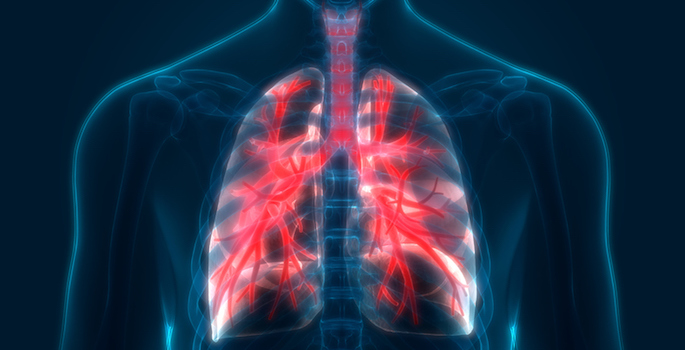
Vanderbilt research played key role in new lung screen guidelines
The U.S. Preventive Services Task Force (USPSTF) has formally recommended two changes that will nearly double the number of people eligible for lung cancer screening by lowering the age from 55 to 50 and reducing the number of smoking history pack years from 30 to 20. Read MoreMar 18, 2021
-

Artificial intelligence calculates suicide attempt risk at VUMC
A machine learning algorithm that predicts suicide attempt recently underwent a prospective trial at the institution where it was developed, Vanderbilt University Medical Center. Read MoreMar 15, 2021
-
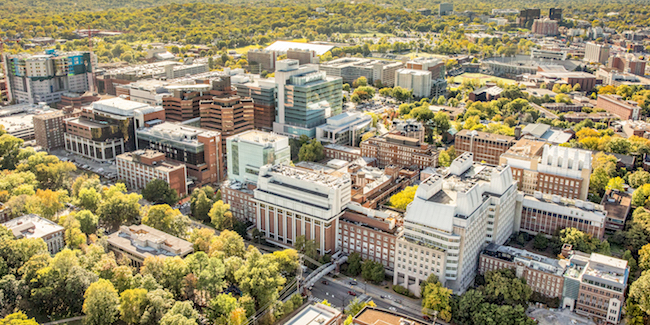
Electronic health record study discovers novel hormone deficiency
A novel hormone deficiency may exist in humans, Vanderbilt investigators have discovered. In an analysis of two decades worth of electronic health records, the researchers found that some patients have unexpectedly low levels of natriuretic peptide hormone in clinical situations that should cause high levels of the hormone. Read MoreMar 11, 2021
-
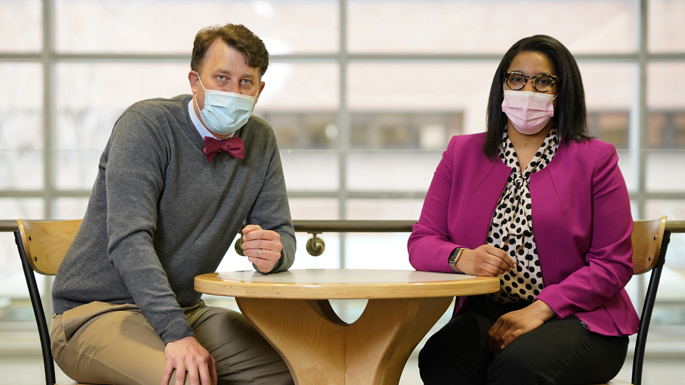
Survey identifies factors in reducing clinical research coordinator turnover
Strong, collaborative relationships with principal investigators are a key factor of longevity in clinical research coordinator positions — an essential, but increasingly transient job in executing treatment-advancing clinical trials, Vanderbilt University Medical Center researchers found. Read MoreMar 8, 2021
-

New research uncovers crucial role of activist lawyers in expanding women’s rights
Professor of Sociology Holly McCammon studies how U.S. women have banded together to achieve political and social change through court cases that bolster their rights. Read MoreMar 8, 2021
-
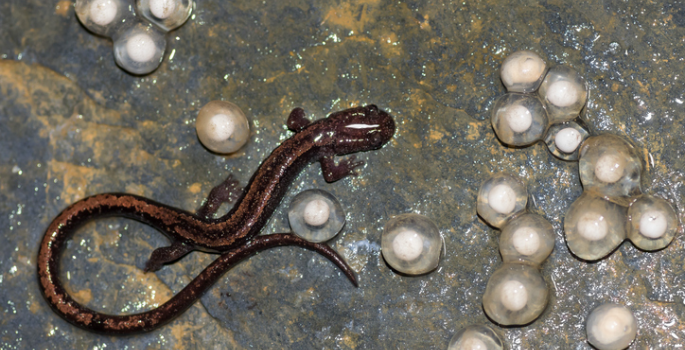
Temperature, newts, and a skin-eating fungus
The emergence of pathogenic skin fungi that cause the disease chytridiomycosis is contributing to the global loss of amphibian populations. Read MoreMar 8, 2021
-

A drop of rubbing alcohol and office laminator provides a manufacturability boost for single atom thick membranes
Vanderbilt engineers used a drop of rubbing alcohol, an office laminator and creativity to develop scalable processes for manufacturing single atom thin membranes. Their membranes outperformed state-of-the-art dialysis commercial membranes and the approach is fully compatible with roll-to-roll manufacturing. Details of the imaginative experiment are recently published in the journal of the Royal Chemistry Society:... Read MoreMar 5, 2021
-
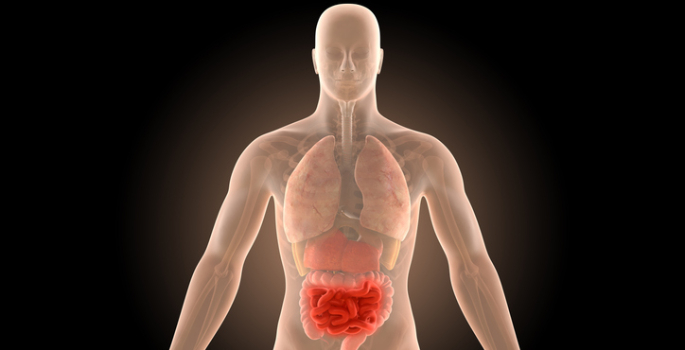
Probiotic protection
A probiotic factor given early in life to mice prevented intestinal inflammation in adulthood, providing a rationale for probiotic intervention in individuals at high risk of developing inflammatory bowel disease. Read MoreMar 4, 2021
-

Targeting glucagon action in diabetes
Disrupting the action of glucagon — a pancreatic hormone that works to raise blood glucose — restores functional insulin-producing cells in mouse models of type 1 diabetes and may be a promising treatment strategy. Read MoreMar 4, 2021
-
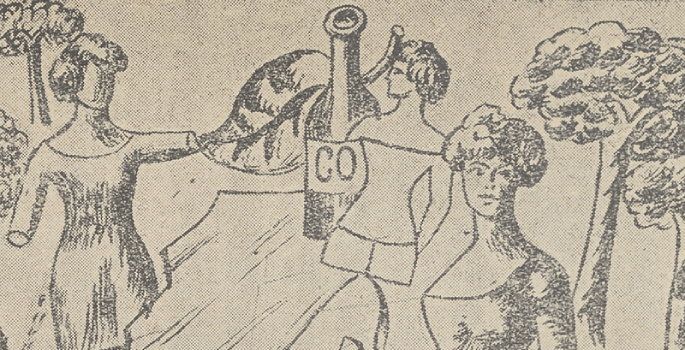
Love of Hebrew and Yiddish leads Allison Schachter to hidden stories of women authors
Allison Schachter, an associate professor of Jewish studies, English, and Russian and East European studies, developed a new theory about the role of women who made lasting and meaningful contributions to Jewish culture and history in the late nineteenth and early twentieth centuries. Read MoreMar 2, 2021
-

Photonics discovery portends dramatic efficiencies in silicon chips
A team led by Vanderbilt engineers has achieved the ability to transmit two different types of optical signals across a single chip at the same time. The breakthrough heralds a potentially dramatic increase in the volume of data a silicon chip can transmit over any period of time. With this project, the research team moved... Read MoreMar 1, 2021